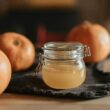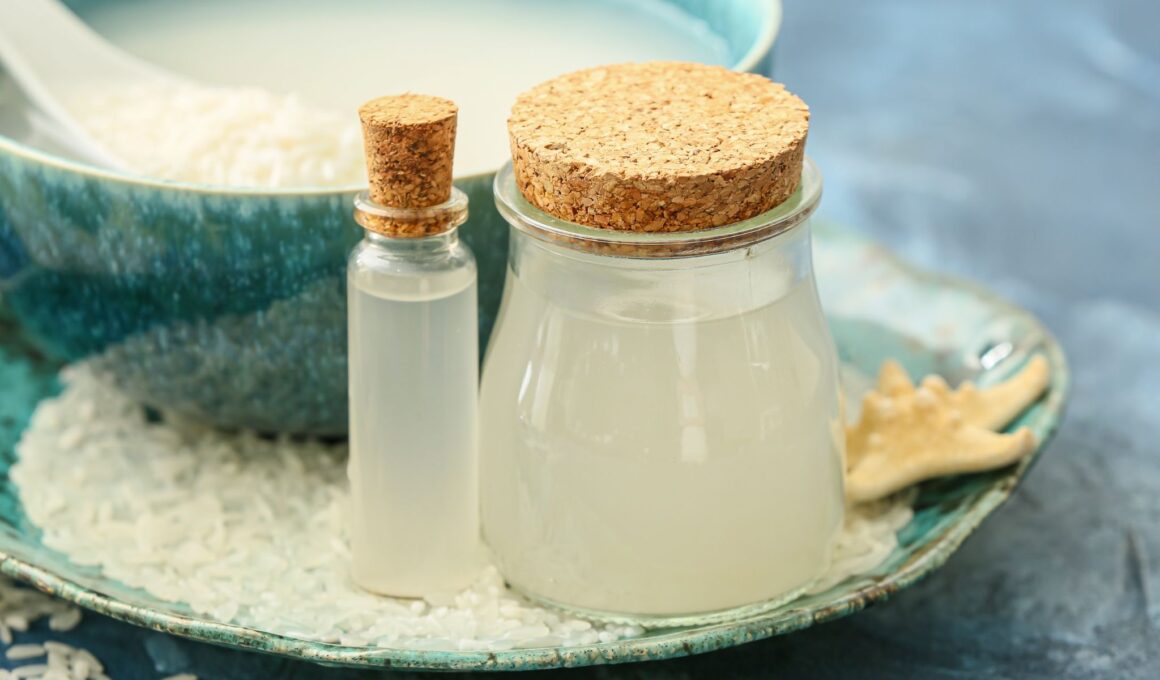This blog post is all about how to make fermented rice for skin.
It has been said that using rice water to your skin is good for your body as well as your hair. The effectiveness of this treatment aids in the battle against discolouration and hair loss. Despite the strange seeming concept, using fermented rice water on your face is really one of the finest methods to enhance your skincare regimen.
On TikTok and other social media sites, this solution has been in the spotlight for some time. Korean rice toner is one of the items I personally use and that many others have been suggesting. It makes you feel good about yourself, which is why I can see why so many people advocate it.
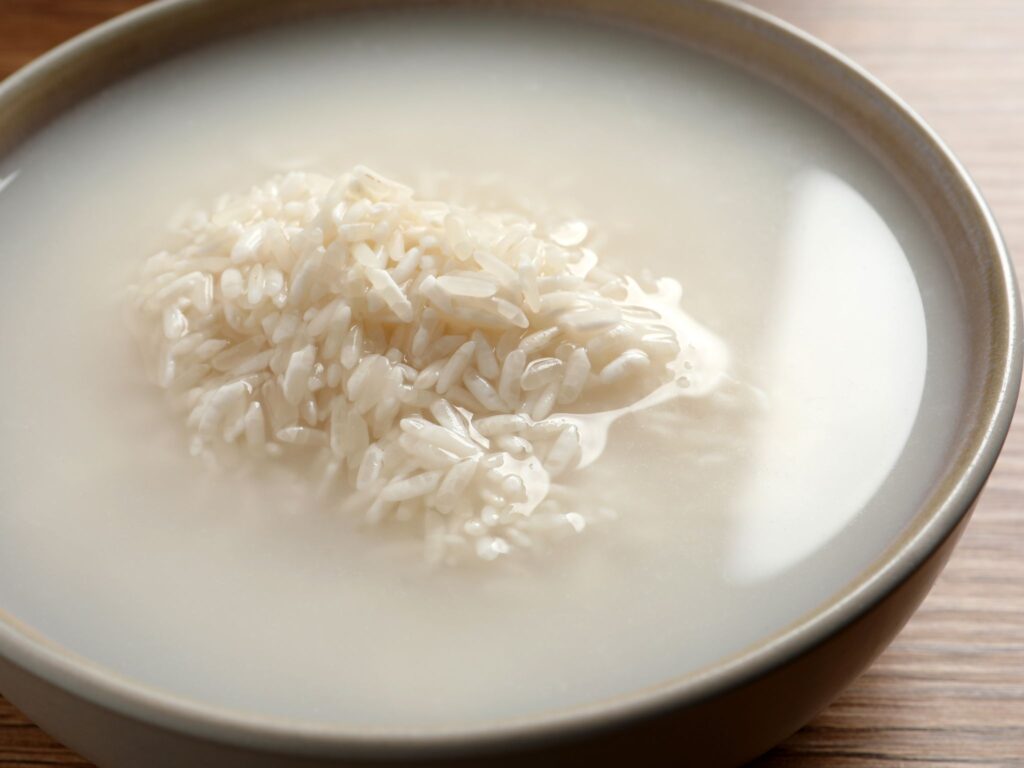
Although this remedy originally started in Japan, it has spread all around the world. Women in Japan would wash their long hair in rice water to make it grow and keep it healthy. And today, so can you.
Fermented rice water has been proven to be a perfect solution for all your hair fall worries.
Here, I’m going to teach you all the benefits fermented rice water has for you and how you can make your own homemade fermented rice water.
How is fermented rice water made? What does it entail?
A natural beauty product with probiotics, vitamins, minerals, and antioxidants is fermented rice water. It comes from the starchy water that’s left behind after soaking or cooking rice.
How is it made?
It’s really simple to make fermented rice water.
After preparing rice in too much water, gather the white water that remains.
Until the water turns sour, let it sit at room temperature for one to three days.
It is enhanced by the fermentation process with probiotics, beneficial bacteria, vitamins, minerals, and antioxidants.
Fermented rice water also benefits your skin and hair by acting as a natural conditioner. Thus, the next time you make rice, save that starchy water; it has a beauty secret just waiting to be discovered.
When applied to skin and hair, fermented rice water works as a natural conditioner, tightening pores, increasing elasticity, and decreasing frizziness. It also stimulates hair development. So, the next time you make rice, save that starchy water—it’s a beauty secret just waiting to be discovered.
Benefits of fermented rice water
1. It reduces skin aging
It has been discovered that rice water lowers the activity of elastase, an enzyme implicated in skin aging, despite the paucity of data supporting rice’s potential to decrease skin aging.
This implies that rice water may help prevent wrinkles and fine lines from appearing on the skin.

2. It has antioxidants
Antioxidants like inositol can be found in rice. Antioxidants aid in preventing the damaging effects of free radicals, which are erratic chemicals that can harm bodily cells.
One of the strongest antioxidants in rice water, ferulic acid, is present in it. This bioactive substance supports the skin’s defenses against pollution and UV radiation-induced free radical damage. All skin types may accept it and find it to be pleasant.
3. Reduce skin irritation
Have you ever suffered itching on your skin? Rice water, though, can assist with that. Two types of persons are affected by bathing in rice starch-containing water: those who have atopic eczema and those whose skin has been inflamed by sodium lauryl sulfate (SLS).
According to their research, people with SLS irritation saw a 20% improvement in their skin’s ability to recover.
4. Dandruff
Fermented rice water has been shown to potentially stop some fungi from growing.
Additionally, the amino acids and vitamins in rice water can nourish the scalp and hair, leading to improved overall hair health.
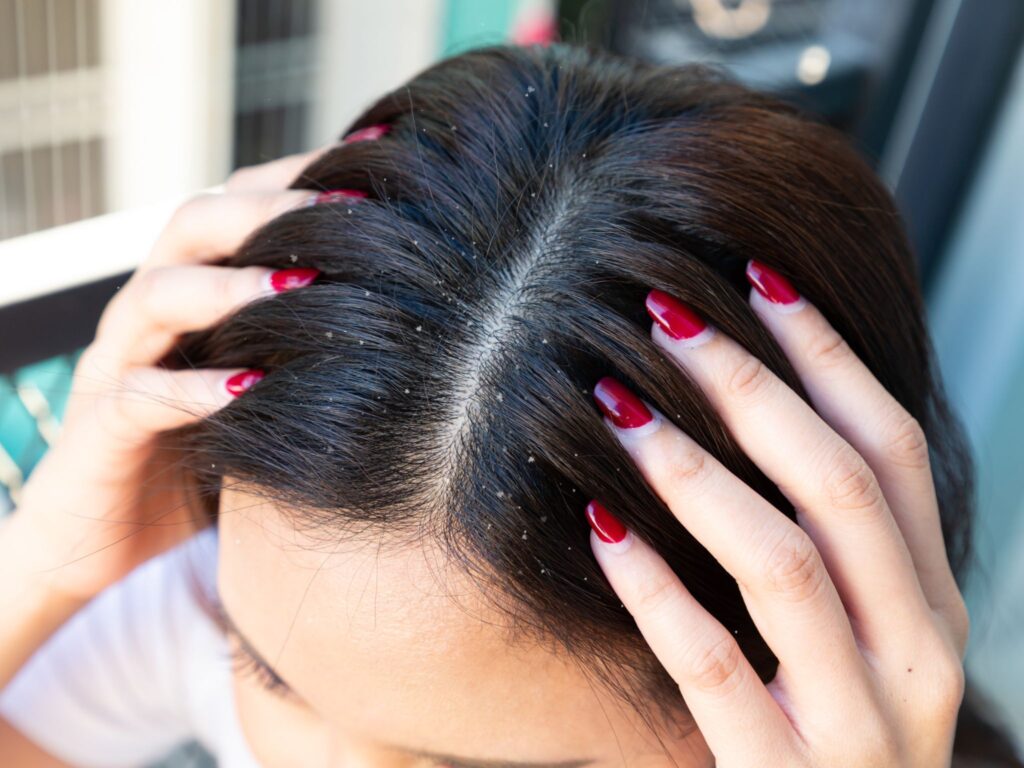
5. Better product absorption
Incorporating fermented water into your skincare regimen enhances its effectiveness and directly applies strong, bioavailable actives to your skin. Compounds including vitamins, minerals, peptides, antioxidants, and so forth become more accessible during fermentation.
6. Brightens skin
Try include fermented rice water in your skincare routine to address dullness or uneven skin tone. The skin-brightening enzymes and antioxidants found in fermented rice water target dark spots, blemishes, and uneven textures to leave the complexion clean and glowing.
7. Reduces hair fall
Your hair’s growth rate can be accelerated by using fermented rice water, which helps to restore the necessary proteins and keratin. Because your hair gets an extra protein boost and becomes stronger and more flexible, it prevents hair fall.
8. Perfect PH level
Its PH level is another justification for using fermented rice water. Rice water’s PH level is a little hard on hair. But because of the fermentation process, which lowers the pH, it may nourish your hair and permeate the stands to deliver the proper vitamins.
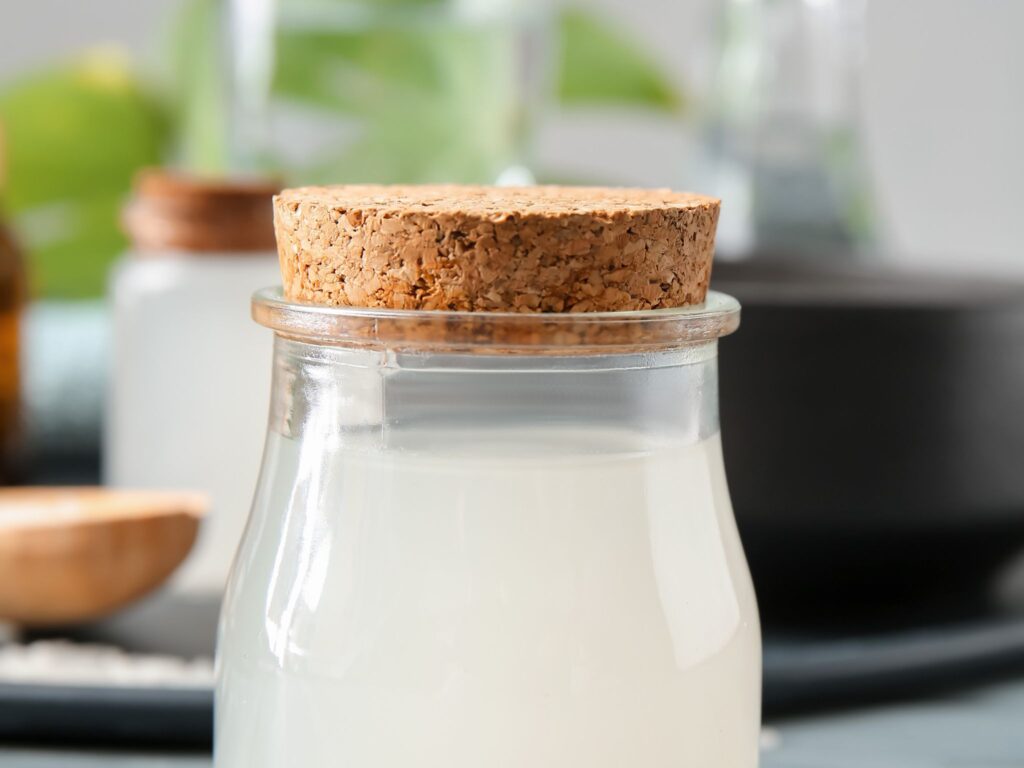
What is the process for using fermented rice water?
To use fermented rice water, simply rinse your hair with it after shampooing and leave it on for 10-15 minutes before rinsing it out with water. You can also use it as a final rinse after conditioning for added benefits.
Steps:
- Shampoo your hair and massage it into your scalp.
- Wash the shampoo from your hair.
- Rinse fermented rice water through your hair and start a massage.
- Leave the fermented rice water for 20 minutes on your hair and scalp.
- Rinse it off with warm water and clean your hair.
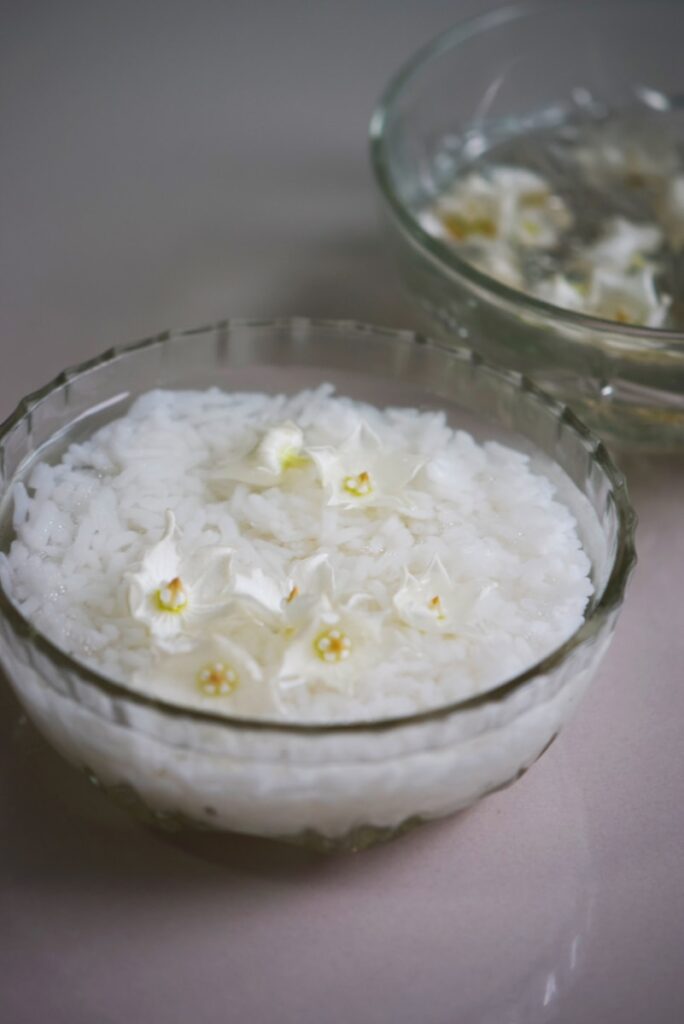
Conclusion
Using fermented rice water as a hair treatment can help improve the overall health and appearance of your hair by providing nourishment and promoting growth. Incorporating this simple step into your hair care routine can lead to stronger, shinier, and more manageable hair over time.
